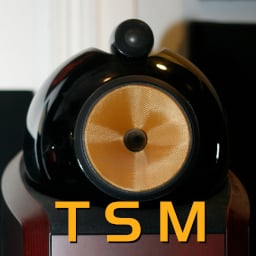It’s not out yet, but there is a kickstarter from German company Volla, coming in the next few days for a 12" tablet running a Mediatek soc that will be capable of running Ubuntu Touch - for which you can use UT native apps, webapps, some Linux desktop apps via their “Libertine” container, and some Android apps via “Waydroid.” And Volla has an excellent track record of delivering on their product promises - in contrast to Purism.
audio mastering engineer at Total Sonic Media - https://totalsonic.net/
- 0 Posts
- 10 Comments

 1·8 months ago
1·8 months agoOr you can use browsers that can be set to not “phone home” - e.g.Brave, Librewolf - there are in fact a few privacy respecting options in this.

 18·8 months ago
18·8 months agoEdge is better if you are wanting to always have your data mined by Microsoft, for sure.

 3·8 months ago
3·8 months ago24bit 96kHz FLAC (purchased from Bandcamp & HDTracks) -> JRiver Media Center software player -> Merging Anubis Pro DAC -> Coleman Audio M3PHmk2 passive monitor controller -> Pass Labs X250 class A solid state power amp -> B&W Nautilus 802 3-way floor standing speakers
Or if from vinyl KAB modded Technics SL1200mk2 -> Shure V-15MR cartridge -> Simaudio Moon LP5.3 balanced preamp ->
(in 20’ x 14’ x 9’ room with bass traps, absorbers and diffusors by GIK, ATS, and Auralex)
Obviously floating point is of huge benefit for many audio dsp calculations, from my observations (non-programmer, just long time DAW user, from back in the day when fixed point with relatively low accumulators was often what we had to work with, versus now when 64bit floating point for processing happens more as the rule) - e.g. fixed point equalizers can potentially lead to dc offset in the results. I don’t think peeps would be getting as close to modeling non-linear behavior of analog processors with just fixed point math either.

 8·9 months ago
8·9 months agoYes, Chromium, from which Chrome places proprietary parts on top of, is an open source project, so anyone can fork it and remove telemetry and tracking. Most browsers are in fact forks of Chromium - e.g. Edge (which replaces Google’s trackers with Microsoft’s own), Opera (which puts in trackers going back to a Chinese corporation), Vivaldi (which doesn’t seem to do tracking but has proprietary parts so is not verifiable) - or, on the privacy respecting side Brave (which is all open source and doesn’t track you once you click opting out on its reporting back to Brave and crypto rewards stuff), Ungoogled Chromium (which tends not to be updated all that quickly) and a few others.

 14·9 months ago
14·9 months agoThe Librewolf project is up to date Firefox core with some hardening and the telemetry going back to Mozilla removed - good stuff.

 18·9 months ago
18·9 months agoOther options are Fairphone, Volla, Murena - or flashing “vanilla” custom ROM’s on phones other than Pixels - or using Ubuntu Touch, Plasma Mobile, Mobian, Droidian or Sailfish OS.

 181·9 months ago
181·9 months ago2025 will likely be way more the year of massive e-waste than the “Year of the Linux Desktop ™” - but I still think it is in the realm of possible that Linux market share close to doubles into the 5 to 8 percent range.
While I already regularly use Ubuntu and Ubuntu Touch for my “infotainment” desktops, laptops and tablets - I have 3 desktops in my studio that run Windows 10 that work great for my pro audio work needs, none of which qualify for Windows 11 according to MS’s “PC Health Check” app. So I’ve been investigating running Ubuntu Studio dual booting on one of my machines as a possible way of keeping these boxes going after Win 10 stops getting security updates. Some things look promising, but given I was not able to get the available kernel module device driver to build for my Merging Anubis (which is my main audio interface for my mastering studio) I will likely still need to get a Win 11 box in order to be able to continue my current work flow.

Geddit also works well as an open source, no-account needed, Reddit browser - https://f-droid.org/packages/geddit.buzl.uk/